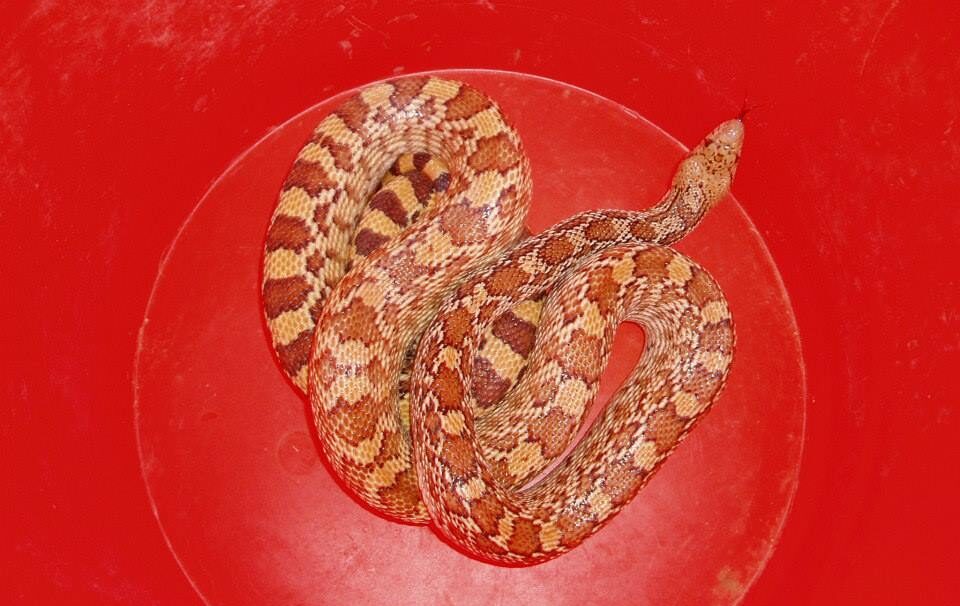
Do Snakes Hibernate?
Snakes do not hibernate. Snakes enter a state called burmation.
Snakes are a member of the reptile family. Over 3,000 species of snakes live all around the world except Antarctica, Iceland, New Zealand, Ireland, and Greenland—all islands. All snakes have scales, which not only help them reduce friction to move more easily but hold in moisture for them in arid climates. And, like their reptile relatives, snakes are ectothermic creatures. This means they are cold-blooded and must rely on their environment to regulate their body temperature.
Snakes During the Winter
It is believed that snakes originated in the warm and forested environments of the southern hemisphere about 128 million years ago. Because they are expert travelers, able to traverse up to about 68,000 square miles, they have been able to spread far beyond their original territory. This ability also led them to inhabit regions with colder climates than their warm origins. Over the millennia, snakes have adapted incredibly well to ensure their viability in these colder climates including their ability to brumate.
Brumation is roughly equivalent to hibernation among mammals. When a snake goes into brumation, it becomes lethargic in an environment that is sufficiently insulated enough for survival in colder temperatures. Within nature, this environment can be a burrow, rock crevices, caves, and even beneath a pile of leaves. As a general rule, snakes begin and end brumation at 60 degrees Fahrenheit.
In the northern parts of the United States, as the weather cools to 60 degrees, the snake seeks out a place to brumate. In these colder climates, this could be around September or October. It then comes out of brumation when the weather once again is above 60 degrees in about May. This brumation period can be much shorter in more moderate climates of the nation. And, in warm climates such as the south or southwest, snakes have no need to brumate at all.
The main difference between hibernation and brumation is that when a mammal nears its time to hibernate, it eats more to gain enough fat to sustain it through its winter’s sleep. Snakes nearing brumation eat less because they do not want food in their system during brumation. During a snake’s brumation period, they are lethargic but not totally asleep. They will rouse to find the water they need to survive and will sometimes even be found sitting on a warm rock in the sun on a warmish day in January!
When a Snake Comes into Your House
In residential areas, snakes will use our homes, sheds, barns, and other manmade structures to help them regulate their body temperature. In hotter regions of the country, they are looking to cool off, while in colder regions, they are looking for warmth. Snakes do not cause any damage to a structure, and they cannot create an opening in your home like a raccoon or squirrel can.
Unfortunately, regardless of climate, no one wants a snake in the house, even though they are pretty fascinating creatures. Snakes will most likely choose a crawlspace, shed, or underneath a porch to take up residence. If a snake is in your home, it is for one of two reasons:
- It made a wrong turn and found its way into your home through a gap in the foundation door.
- You have a rodent problem, and it smells food.
Should you suspect a snake in your home or other structure, do not try to find it or get rid of it yourself. Because snakes are relatively shy of people, you might never actually see the snake but might find its shed skin. If you do see the snake, leave it alone. A snake rarely attacks unless provoked. But, you do not want to scare it into finding a hiding spot where you lose track of its whereabouts.
Call Critter Control to safely remove the snake and to repair areas where it entered so it or another creature cannot return. Critter Control uses only humane methods to remove snakes as they fulfill an essential function in our ecosystem. In addition, we can evaluate whether or not the cause of your snake infestation is due to brumation or a rodent infestation. If we find rodents, we can eliminate and repair any damage they may have caused.
Get them out.
Keep them out.®
Experiencing a wildlife or pest issue? We can help! Complete this form and your local Critter Control® office will contact you to assist.
- Baby Snakes: Identification & Behavior
- Non-Venomous Snake Removal
- Snakes in Crawl Spaces
- Venomous Snake Removal
- Snake Diet
- Snake Identification: Venomous and Non-Venomous Snakes
- Life Cycle of a Snake: Reproduction & Removal
- Types of Snakes in North America
- Snakes in Attics
- Snakes in Your Basement or Crawl Space
- Snakes in the Bathroom
- Snakes in the Kitchen – Entry & Prevention
- Snakes in a Garage or Shed
- Snakes in Your Grass or Yard
- Snakes in Your Pool
- Snakes Under Your House or Deck
- Snake Poop & Droppings
- Snake Holes: Problems & Removal
- Snakes in the House